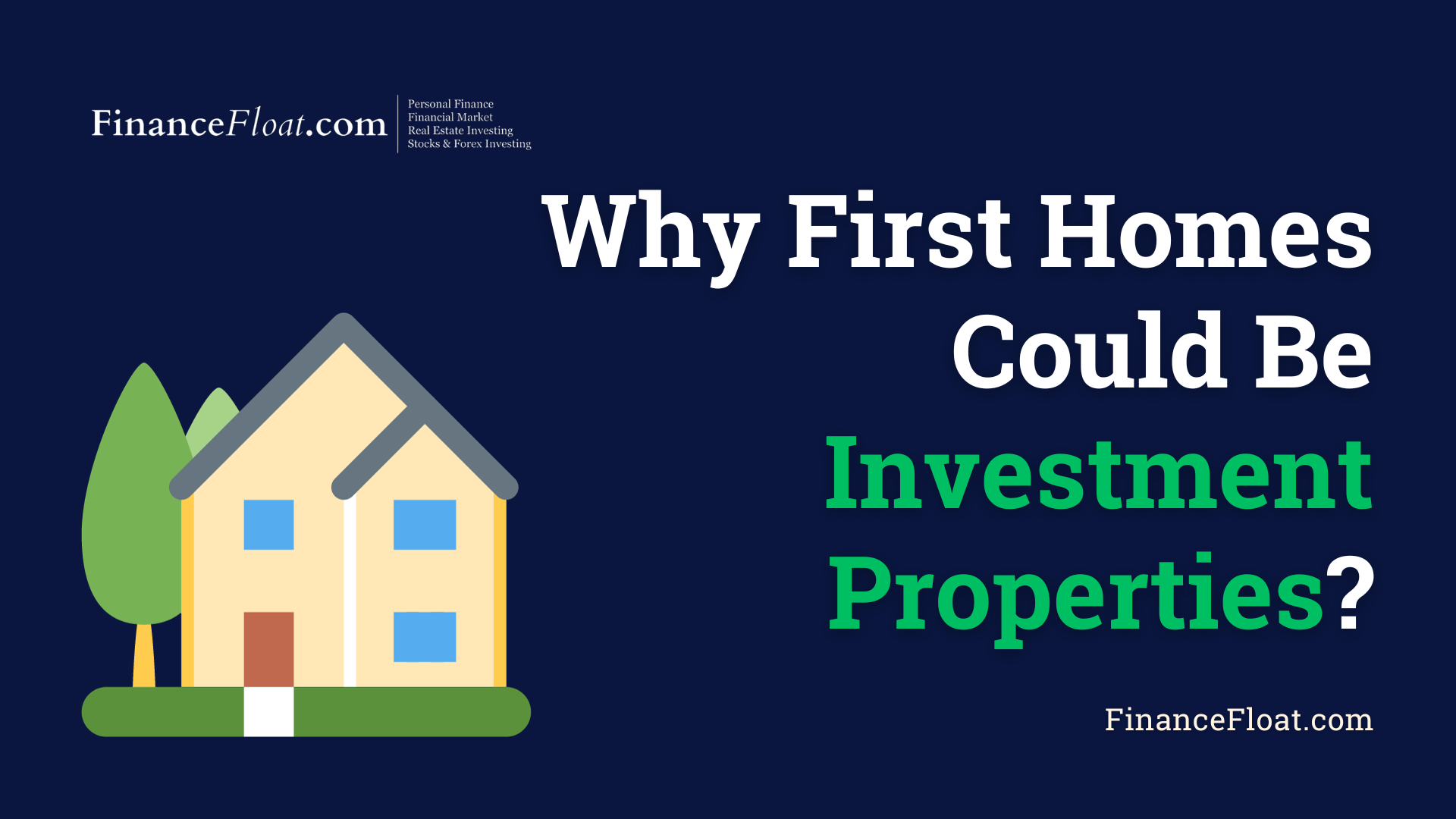Investment Properties – The notion of buying your first home as an investment property rather than just a place to live goes against the traditional approach. However, for the right person in the right market, a first home can absolutely be a lucrative real estate investment. This comprehensive guide examines the benefits, challenges, tips, and frequently asked questions about treating your first home purchase as an income-generating asset.
Introduction – Investment Properties
The typical first home buyer looks for a place to settle down and live in for the foreseeable future. But with the right research, planning, and financial discipline, your inaugural home purchase could also serve as a rental property investment. While unconventional, this approach allows young buyers to get a foothold in income-producing real estate early on.

Turning your first home into an investment takes careful analysis of the risks, obligations, and market factors involved. If executed properly, it can tremendously accelerate your ability to build wealth through real estate.
The Traditional Approach vs. Investment Property
The traditional view sees a first home as primarily a place to live rather than an investment. The focus is on choosing a property based on personal lifestyle preferences and needs. Little consideration is given to the home’s potential to generate rental income.
In contrast, an investment approach treats the first home purchase as a business decision intended to make money. You buy in a location and price range optimized for attracting quality tenants at profitable rental rates. The choice is based on investment merits rather than personal residential preferences.
Benefits of an Investment Approach
Purchasing your first home as a rental investment can be an extremely rewarding financial move for certain buyers:
You Can Handle More Risk While Young
Younger first-time investors have a longer time horizon to recover from any market fluctuations or rental vacancies. With decades ahead of income-earning potential, they can take on higher risks for higher rewards.
For example, 25-year-old Lily purchased a duplex in an up-and-coming neighborhood as her first property. While the area comes with higher tenant turnover and vacancy risk, Lily uses the rental income to cover her mortgage. Within five years, the neighborhood's rising popularity allows her to charge higher rents and build equity through appreciation.
You Can Find Bargains in Certain Markets
Not all real estate markets are suited for first-time investors. But some pockets of the country offer unique bargains, like college towns with high tenant demand.
For instance, Kyle bought a 5-bedroom house near the local university as his first investment property. He rented out the rooms to students at profitable rates, easily covering his mortgage. The high turnover didn't matter since there was endless demand from new students each year.
Rental Income Becomes a Major Asset
Owning an investment property at a young age allows decades of rental income to pad your finances. Brian purchased his first home in his mid-20s in an area filled with young professionals needing rentals. He slowly bought up more properties. By 30, his rental income surpassed the salary from his 9-to-5 job.
FHA Loans Can Assist First-Time Buyers
The Federal Housing Administration (FHA) offers low down payment loans that can help first-time buyers purchase investment properties. Jason used an FHA loan to buy a small multifamily home with just 3.5% down. He lived in one unit and rented the other two, with the rental income covering his entire mortgage.
Challenges of a First Home Investment
While this approach holds benefits, first-time investors should weigh the challenges:
Financial Responsibilities Can Be Burdensome
Owning an investment property comes with major financial responsibilities. You are accountable for mortgage payments, taxes, insurance, maintenance costs and repairs—all before generating rental income.
New investors often underestimate these obligations. For example, when repairing a long-neglected roof ended up costing him $15,000, Samuel quickly realized the burden of managing an investment property.
Market Fluctuations Impact Your Investment
Local real estate markets fluctuate with economic changes. An area popular with tenants today could decline, leaving vacancies and lowering rents. The global 2008 financial crisis highlighting this risk caught many new investors off guard.
To mitigate such exposure, don’t over-leverage with excessive debt. And hold adequate cash reserves to withstand periods of vacancies.
Tenant and Property Laws Are Complex
Investment properties come with many legal and regulatory obligations around tenant relations, safety, discrimination, and more. Lacking familiarity with these nuances can expose novice investors to substantial risks.
For instance, Maria failed to understand habitation laws in her city and illegally evicted a tenant. The resulting lawsuit cost Maria thousands in legal fees alone.
Tips for a Successful First Home Investment
Follow these tips to overcome the hurdles and successfully invest in your inaugural property:
Conduct Thorough Market Research
Identify markets with characteristics ideal for new investors, like affordable property prices coupled with high rental demand. Look for data on local job and wage growth to gauge an area’s investment prospects.
Michael extensively researched neighborhoods near his desired city that showed promising gentrification trends. This allowed him to buy a property primed for value appreciation.
Choose the Property Wisely
Consider practical factors like the property’s age, layout, renovations required, and ease of maintenance. Curb appeal matters since it helps attract tenants.
Also, run the numbers to confirm the potential rental income supports your investment goals. You want to secure properties with the highest profit-earning potential.
Budget for Improvements
Most properties require some degree of renovation or updating for optimal rentability and returns. Be realistic about the improvement costs needed.
When Lauren failed to budget for necessary renovations, she ended up cash-strapped with a half-finished rental that stood vacant. Instead, save up a contingency fund to handle unforeseen costs.
Weigh the Property Management Options
Hands-on investors can self-manage their properties to save costs but it requires ample time. Novices may prefer hiring a property management company to handle tenant screening, maintenance, rent collection etc.
Maintain the Property Diligently
Ongoing maintenance keeps your property appealing to tenants and prevents bigger repair issues down the road. Tenants expect clean, functional, and safe living conditions.
Plan for All Contingencies
Keep substantial cash reserves to handle unexpected costs like major repairs or vacancies. Also, purchase landlord insurance to safeguard against liability and loss of rents. A comprehensive financial plan gives your investment the best chance of prospering.
Frequently Asked Questions
Should I invest in my first home rather than rent?
It depends on your financial situation and real estate market. In some areas, purchasing a home to rent out provides better returns than paying rent. But in other markets, renting while saving up may be the smarter move.
What types of properties are best for first investments?
Opt for smaller, more affordable properties like condos, townhomes and multi-family homes. Avoid big, expensive, single-family houses that come with higher risk for first-timers.
How can I finance my first investment property?
Explore FHA loans, bank loans, hard money loans, partnerships, or house hacking strategies (renting rooms in a multi-bedroom property you live in).
What should I know before becoming a landlord?
Learn tenancy laws, property regulations, insurance requirements, taxes, and financing criteria. Also, decide if you’ll self-manage or hire help to handle maintenance and tenant relations.
How can I reduce risks in real estate investing?
Stick to affordable properties in stable, growing markets. Keep substantial cash reserves and purchase all required insurance policies. Also, don’t over-leverage yourself with excessive debt.
Conclusion
While unconventional, purchasing your first home as a rental investment can be a rewarding strategy if executed prudently. It allows young buyers to get a head start on generating passive income through real estate. However, success requires in-depth research, realistic budgeting, hands-on involvement, and accepting higher risks. If you enter the process fully informed and prepared, your first home can absolutely double as a lucrative investment property.

